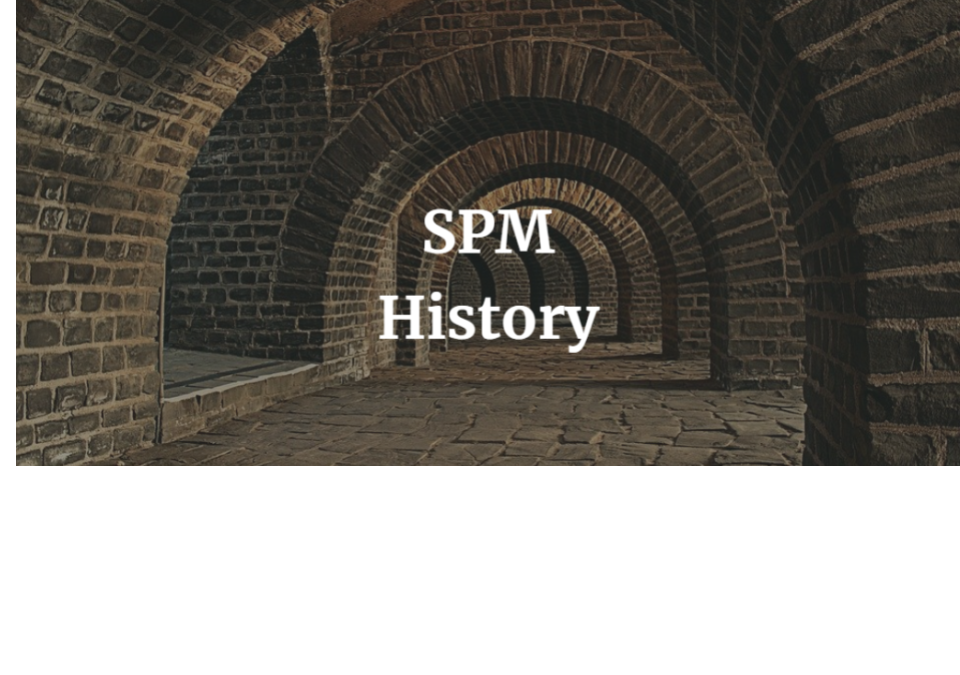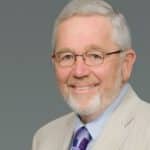As I was volunteering for SPM, it took years to learn its history and understand where we are, how the Society got created, and why it is what it is. This is not a historical well-documented history of SPM, it’s my imperfect interpretation of its history.
Doc Tom Ferguson was a brilliant doctor with ideas ahead of his time. He had a productive career, wrote books and articles, but his ideas, that are still valid today, were hardly even recognized during his lifetime, and are still not widely adopted.
“Doc Tom” Ferguson (Wikipedia) envisioned health care as an equal partnership between e-patients and health professionals and systems that support them. The medical editor of the Millenium Whole Earth Catalog (1994), he founded Medical Self-Care magazine, wrote the visionary 1996 book Health Online: How To Find Health Information, Support Groups, And Self Help Communities In Cyberspace, and authored several papers in the BMJ, as early as 2000.
A true visionary, less than a year after the Mozilla browser arrived he published a pair of slides that showed how “information age healthcare” would turn medicine on its head.
Before Tom’s untimely death in 2006, he was writing his manifesto, now known as the White Paper, in consultation with the group of advisers he dubbed the e-Patient Scholars Working Group. They finished the paper and published it a year later, and in 2009 formed our Society for Participatory Medicine. https://participatorymedicine.org/about/board-of-directors/founders-circle/
The e-Patient Scholars Working Group is an impressive group of people. Each of them has decades of experience researching and helping patients connect to each other. Among others we had:
- Susannah Fox and Lee Rainie at the Pew Research Center’s Internet & American Life Project created the survey reports on e-patients and online health since 2000. After leaving The Pew Research Center, Susannah continued to support e-Patients and SPM in her roles at the RWJ Foundation, encouraging innovation at HHS and through speeches, consulting and subsequent research.
- Back in 1995, Gilles Frydman founded ACOR (Association of Cancer Online Resources) as the first large-scale online social network for cancer patients and caregivers. ACOR morphed into the online community Smart Patients that continues to help patients with serious diagnoses connect to each other and share resources, research and emotional support.
- In 1981, Joe and Terry Graedon launched The People’s Pharmacy public radio program to help people make informed decisions about their health. They subsequently launched the website.
- In 1995 John Grohol launched Psych Central, the Internet’s largest and oldest independent mental health online resource. The website has been run by mental health professionals offering reliable, trusted information and over 250 support groups to individuals struggling with a problem in their lives.
- Back in 1998, Danny Sands figured that physicians will jump right on the email bandwagon to communicate to patients and within AMIA co-authored the Guidelines for the Clinical Use of Electronic Mail with Patients
- Alan and Cheryl Greene launched the website drgreene.com in 1995 to answer practical questions from parents that couldn’t be answered during office hours. It was the first physician website recognized by the AMA. Dr. Greene is still going strong and Alan Greene wrote a number of popular books and keeps helping parents.
The Founders are meeting every year in February at Cook’s Branch -a nature preserve Tom’s family donated to the Texas state. They share ideas and their thinking. For “young” me, there’s a level of magic involved in these meetings. I would love to be a fly on the wall there. As all magical things, I probably would discover these are just regular folks, but still… what awesome things they achieved in their lifetime!
Doc Tom’s family doted on and is still doting on SPM. I was amused to hear that SPM got a new $10,000 grant for their tenth year anniversary… it really feels like the organization is their grandchild and they help it grow.
When the Founders created the SPM, they did not imagine it to be a members’ association.
As with Patients Like Me and other websites at the time, the user/member forums were added by default – they came free with the websites. The SPM website most likely came with a Forum and, like me, people just started showing up, wanting to learn more about this smart, forward-thinking group.
SPM opened up to members, and it took a very long time to understand what the members wanted the organization to be. Member surveys were collected and interviews were organized. The mission, vision and strategic plan were refined year after year.
For impatient patients like me, this seemingly took forever. Why couldn’t they move faster? They are so smart, could they just help get healthcare better!
I started volunteering for SPM in my early 40s. The 40s are an awesome time of combined energy and competence. One can do so many things! I wanted to get the healthcare system changed and SPM was going to get us there. I felt that my calling was to organize the community around the smart people that led the Society. I got a load of network connections and I like to think that, for a while, I helped them connect to each other. I got them ready to engage in the vision of SPM.
When the strategic plan was released, it was general and imprecise. It was wordy and non-actionable. We didn’t have a clear direction. Year after year, we built it a bit further.
Change doesn’t happen fast. SPM is an organization of smart people, and as all good things do, it takes years to mature. They take their time listening and a very long time deciding what to do next. As I get older, I start having more patience and more understanding of the slow nature of some endeavors.
Let’s hope that the newest addition – a Manifesto – will be the beginning of creating change. A lot of other political and financial interests converge toward change in healthcare. Let’s hope that SPM will be at the front of these changes pioneering a better healthcare system for our children.







I knew and wrote for Tom back in the Medical Self-Care days which was probably the early 1980s maybe earlier. I last saw Tom in the early 2000s when we talked about my ideas for launching our on-line programs.
You missed a very important early contributor Jessie Gruman who ran the Center for Advancing Health. Her work was well before its time in focusing on patient input.
I think that Jessie, like me became disillusioned with the organization and we both distanced ourselves. I am sure that there are others. I remember one powerful meeting in Marin County, probably not an SPM meeting but where all or at least most of the principles attended.
I doubt that Tom would be happy with where the organization stands today.
OMG, yes, Jessie Gruman! How could I forget her! I will write and update a paragraph sometime this week.
Tom might not be happy with where the organization stands today, but he probably would optimistically look at the future. Stay tuned, I have more coming in.
The funny thing is that I would have totally subscribed to your opinion just a couple of months ago, and then I heard Susannah Fox’ words remembering Tom:
“I asked Tom how he was able to maintain his sunny optimism. He was smiling, even as he was a decade into cancer treatment and four decades into the fight for patient empowerment.
I believe that some of his optimism was genetic — a pioneer, entrepreneurial spirit — but his answer took no personal credit. He talked about his Zen practice, his focus on gratitude and to “be here now.” To be in the moment, at all times, is to exist in possibility.”
https://participatorymedicine.org/epatients/2019/10/congratulations-to-the-2019-doc-tom-award-winners-susannah-fox-ileana-balcu.html
Kate, I dearly wish you had time to contribute in your retirement to making this what you believe Tom would have wanted it to be. Danny is always looking for competent, astute board members and there is so much more to conceive, lead, and do even if one is not on the board.
In case you or anyone wonders, this society was not my idea :-) … Tom’s friends were having their annual gathering at his family’s nature conservancy in February 2009 and decided to do this. We had exactly zero experienced org-starters in the room and on the starting board. (I became co-chair because Gilles Frydman said SPM *must* be led by a doctor-patient pair, and that was that.)
But all I know how to do is spread the word about ideas, which I did on the blog and in speeches.
I left the board eventually, partly to make room for new faces / minds / voices and partly because some people kept thinking I WAS the society – probably because most of what they heard about it was from my speeches and blogging. Anyway, since I left, new and different things have been happening, and lord knows we’d love to have more.
There’s never much use in pointing out how badly one thinks others are doing their volunteer work. We’d all love to have more wise hands on shovels … it’s no coincidence that the home page image on http://participatorymedicine.org is a group of people building a house together. (It happens to be a Creative Commons image from Habitat for Humanity.)
(I’m pretty sure somewhere between 2 and 50 people will be mad at me for saying all that, but there you have it.)
Nice job Ileana